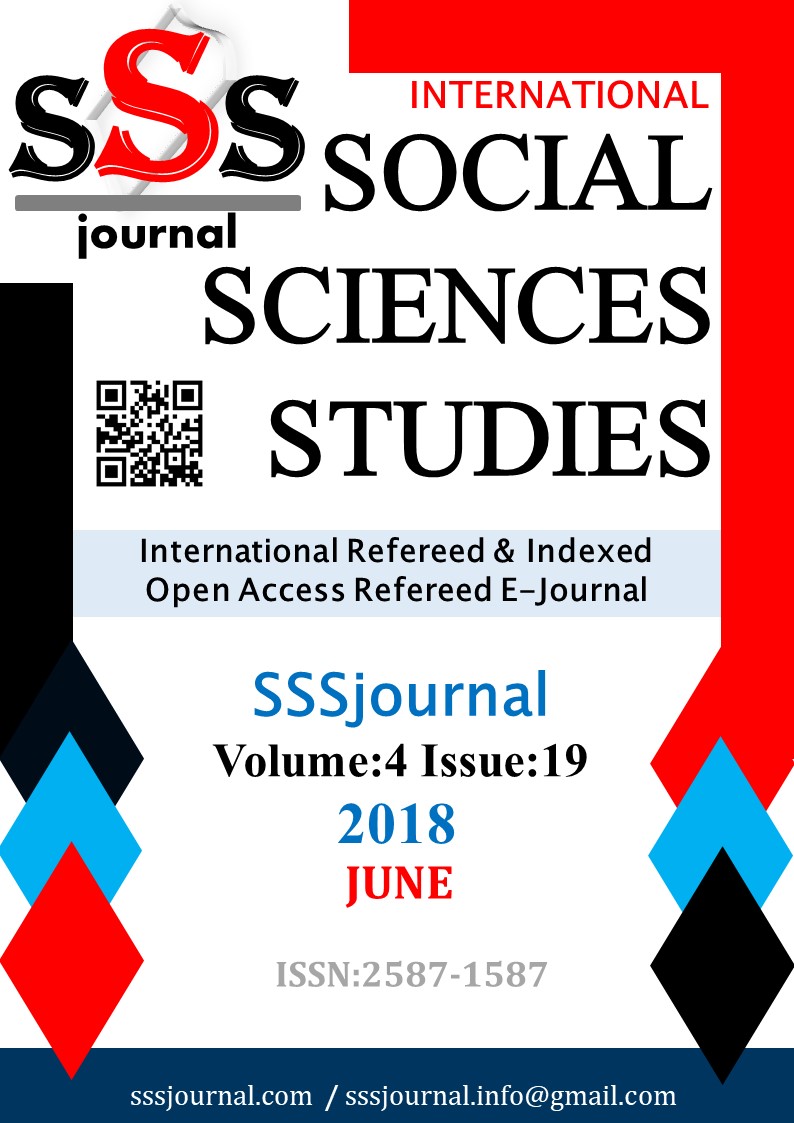TÜRKİYE’DEKİ GÖÇ POLİTİKALARI EKSENİNDE GÖÇ İDARESİ GENEL MÜDÜRLÜĞÜ VE BİRLEŞMİŞ MİLLETLER MÜLTECİLER YÜKSEK KOMİSERLİĞİNİN KURULUŞ VE FONKSİYONLARI
Author :
Abstract
Uluslararası göç disiplinler arası çalışma gerektiren ve 21. yüzyıla damgasını vuran konulardan biridir. Türkiye, çevresindeki ülkelere nazaran siyasi ve ekonomik istikrara sahip olmasına karşın, sık çatışma ve savaşların yaşandığı bölge olan Ortadoğu’ya yakın olması nedeniyle yoğun bir göç akımına maruz kalmıştır. Ayrıca Türkiye için göç olgusu dinamik bir yapıya sahiptir çünkü hem dışa göç veren, hem transit geçişin gerçekleştiği hem de göçmen kabul eden bir ülkedir. Bu durum Türkiye’nin göç politikalarının belirlenmesinde önemli bir yere sahiptir. Etkili göç politikalarının belirlenmesi ve doğru uygulanması, insan hakları ihlallerinin olmaması ve kamu güvenliğinin zedelenmemesi açısından oldukça önemlidir. Aksi takdirde uluslararası göç bakımından “kaynak,” “hedef” ve “geçiş” ülkesi olan Türkiye’nin mültecilerin ekonomik maliyetleri ve çeşitli göç sorunları ile karşı karşıya kalması muhtemeldir. Bu çalışmanın amacı Türkiye’de göç politikaları ekseninde göç ve mülteciler konusunda faaliyet gösteren Göç İdaresi Genel Müdürlüğü ve Birleşmiş Milletler Mülteciler Yüksek Komiserliğinin Kuruluş ve Fonksiyonlarını ele almaktır. Çalışmada öncelikle göç ve mülteciler ile ilgili konular hakkında bilgi verilmekte ardından ana hatlarıyla Türkiye’deki mülteci ve göç politikaları ele alınmaktadır. Bu çerçevede Göç İdaresi Genel Müdürlüğü ve Birleşmiş Milletler Mülteciler Yüksek Komiserliğinin Kuruluş ve Fonksiyonlar değerlendirilmektedir. Çalışma, ilgili literatüre dayalı olarak süreç analizi ve betimsel bir yöntemle hazırlanmıştır.
Keywords
Abstract
International migration is one of the issues that requires interdisciplinary study and strikes the 21st century. Despite having political and economic stability compared to the countries around it, Turkey has been subjected to a massive migration trend due to its proximity to the Middle East, where frequent conflicts and wars are experienced. In addition, migration for Turkey has a dynamic structure because it is a country that both emigrates, transits, and accepts the refugees. This situation has an important place in determining the immigration policies of Turkey. Determination and proper implementation of effective migration policies is highly crucial for the prevention of human rights violations and for the protection of public safety. Otherwise, Turkey, which is the "source", "destination" and "transit" country in terms of international migration, is likely to face economic costs and various immigration problems for refugees. The aim of this study is to examine the establishment and functions of the Directorate General of Migration Management and the United Nations High Commissioner for Refugees, which are active in the field of immigration and refugees in Turkey. This study first provides information on issues related to migration and refugees and then outlines the policies of refugee and immigration in Turkey. In this context, the establishment and functions of the Directorate General of Migration Management and the United Nations High Commissioner for Refugees are evaluated. This study has been prepared by process analysis and descriptive method based on the related literature.
Keywords
- Aker, A, (2015), “Zorunlu Göç Yasayan Ailelerin İkinci Kuşak Üyelerinin Sağlık Durumu”, Kocaeli
- Aker, A, (2015), “Zorunlu Göç Yasayan Ailelerin İkinci Kuşak Üyelerinin Sağlık Durumu”, Kocaeli Üniversitesi, Kocaeli, 2006.Akgül, A, Kaptı A., Demir, O. A Journal of Policy and Strategy , 1, 1-22.
- Barbaros, H, (2009), “Düzensiz Göç Sürecinde Kadın Göçmenler: İstanbul’dan Bir Kesit”, İstanbul Üniversitesi, İstanbul, 5-6.
- Birleşmiş Milletler Mülteciler Yüksek Komiserliği ve İçişleri Bakanlığı (2005), İltica ve Göç Mevzuatı, Ankara: BM Mülteciler Yüksek Komiserliği ve İçişleri Bakanlığı Yayını.
- BM Mültecilerin Hukuki Durumuna Dair Sözleşme, (1951), TBMM İnsan Haklarını İnceleme KomisyonuÇiçekli, Bülent, Uluslararası Hukukta Mülteciler ve Sığınmacılar, 22, 2009. Demirhan, Y, Aslan, S. (2015), Birey ve Toplum, 5,24-62.
- Göç İdaresi Genel Müdürlüğü (2014). Türkiye ve Göç, Göç İdaresi Genel Müdürlüğü Yayını, Ankara, s. 9-11.
- İçişleri Bakanlığı Göç İdaresi Genel Müdürlüğü, (2015) http://www.goc.gov.tr (erişim tarihi: 16.10.2017)
- Kışla, İsrafil, (2008), İstanbul üniversitesi sosyal bilimler enstitüsü çalışma ekonomisi ve endüstriel ilişkiler anabilim dalı doktora tezi, İstanbul, 3.
- Mültecilerin Korunması Uluslararası Mülteci Hukuku Rehberi,( 2001), Parlementerler için el kitabı, Ankara: BM Mülteciler Yüksek Komiserliği ve İçişleri Bakanlığı Yayını.
- Murat, S (2006), “Dünden Bugüne İstanbul’un Nüfus ve Demografi Yapısı”, Yayın No: 2006-49, İstanbul, İTO Yayınları.
- Sağıroğlu, A(2015), Disiplinler Arası Göç Politikaları Sempozyumu, 69-87, İstanbul, İzu Yayını.
- UNHCR, BM Mülteciler Yüksek Komiserliği, (2015), http://www.unhcr.org/( erişim tarihi: 16.10.2017) Uzun, E, (2016), Göç Araştırmaları Dergisi, 2, 60-85.
- Tekelioğlu, M, Doğan, A, Çelebi F, (2015), Disiplinler Arası Göç Politikaları Sempozyumu, 26-45, İstanbul, İzu Yayını.
- Ziya, O, (2012), TBB Dergisi, 99, 229-240.
- 6458 Sayılı Yabancılar ve Uluslararası Koruma Kanunu, (2013), İçişleri bakanlığı göç idaresi genel müdürlüğü yayını.
